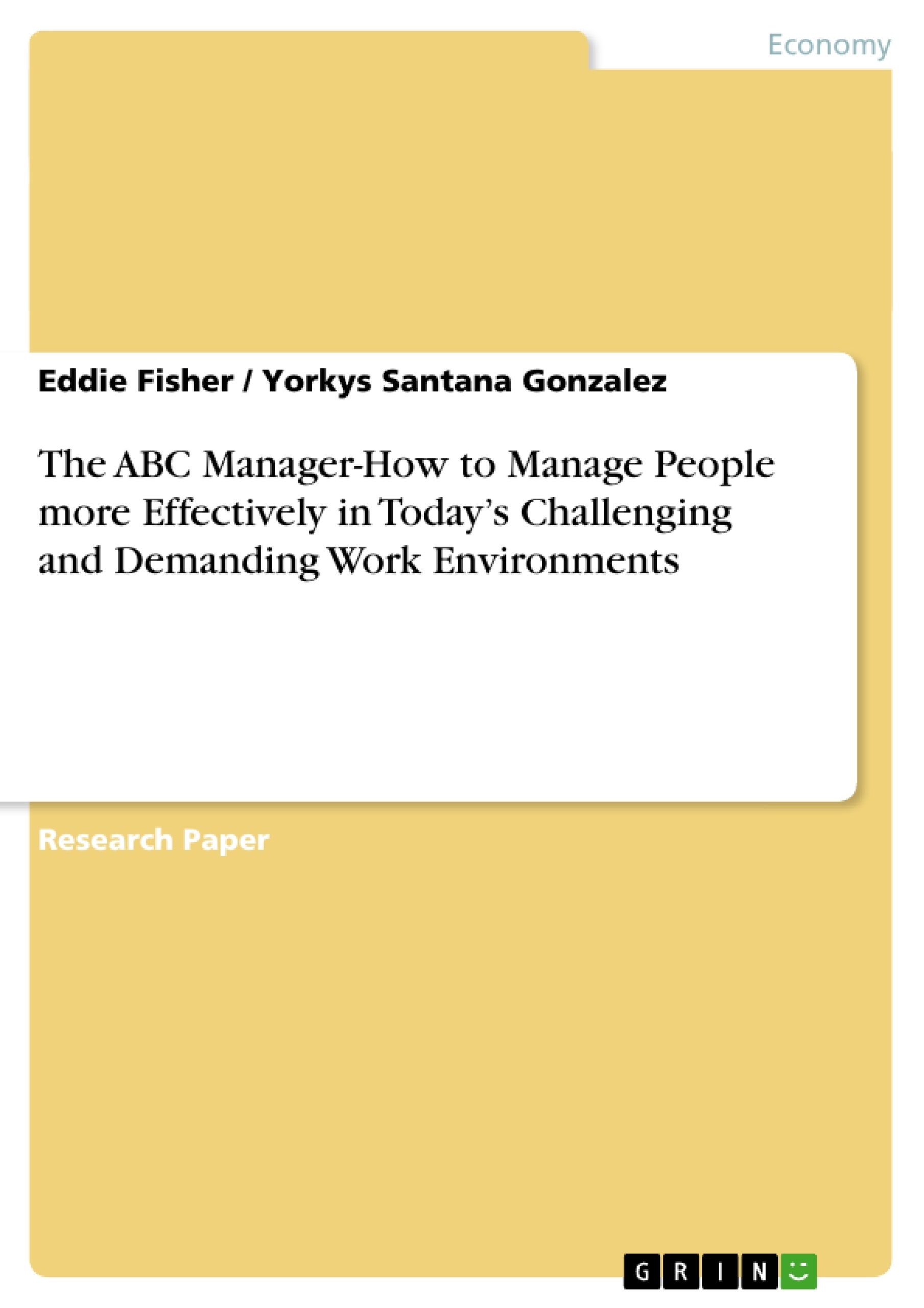It is recognized by academics and the community of practice that the management of people plays an important role in today’s challenging and competitive working environments. Recent people skills research expresses the need to investigate how knowledge of the concepts of attitude and behaviour can help managers to improve their managing people skills and competences. Social Psychology plays an important role in establishing what makes an effective people manager. This paper proposes what practising social psychologists consider are the attitudes, behaviours and competences (ABC) of an effective people manager. A combination of literature review and contributions from a focus group meeting with practising social psychologists provided new insights to answer the main research questions and to confirm whether the research hypotheses are valid. The results suggest that managers would benefit from adopting and applying the suggested ABC skills set for their own benefit and the benefit of those they are managing. It is suggested that managers with an ABC skills set are highly likely to make significant contributions towards business growth the organizations they work for. The outcome of this research is applicable and relevant to managers in any working environment such as Construction, IT, Finance or Consultancy. The proposed skills set of what makes an effective ABC manager can be universally applied although some modifications may be necessary to meet the needs of cultural diversities.
Inhaltsverzeichnis (Table of Contents)
- Introduction
- Introduction
- Literature Review
- Attitude and Behaviour
- Competence
- Knowledge Gap
- Main Research Questions/Hypotheses
- Research Methodology
- Method
- Data Analysis
- Results
- Focus Group Meeting
- Discussion
- Conclusions
Zielsetzung und Themenschwerpunkte (Objectives and Key Themes)
This paper investigates the role of social psychology in improving people management skills, focusing on the interconnectedness of attitude, behaviour, and competence (ABC) in today’s demanding work environments. The main goal is to explore how managers can develop and apply an ABC skills set to enhance their own performance and that of their teams. Key themes and ideas discussed include:- The importance of a holistic approach to managing people that considers attitude, behaviour, and competence.
- The impact of social influences on individual attitudes and behaviours in the workplace.
- The need for managers to understand and influence the ABC of both themselves and their team members.
- The practical application of ABC skills to improve team performance, individual growth, and organizational success.
- The contribution of social psychology to addressing real-world challenges in management.
Zusammenfassung der Kapitel (Chapter Summaries)
- Introduction: This chapter introduces the evolving role of managers in today’s business landscape, highlighting the increased emphasis on people management and the growing importance of social psychology in the workplace. It also defines the key concepts of attitude, behaviour, and competence, setting the stage for the research.
- Literature Review: This section delves into existing research on attitude, behaviour, and competence, exploring their individual and interconnected influences on work performance. It examines how these concepts can be applied to management development and leadership success.
- Research Methodology: This chapter outlines the research methodology employed, emphasizing the constructivist interpretivist approach within a phenomenological research paradigm. It describes the data collection methods, including a literature review and a focus group meeting with social psychology experts.
- Results: This section presents the findings of the focus group meeting, where experts in social psychology provide insights into the ABC skills set of effective managers. The chapter highlights their views on the importance of positive attitudes, behaviours, and competencies in achieving success.
- Discussion: This chapter discusses the implications of the research findings, emphasizing the importance of managers adopting a positive attitude and influencing the ABC of their team members. It explores how the ABC skills set can contribute to improved team performance, job satisfaction, and organizational success.
Schlüsselwörter (Keywords)
This work focuses on the application of social psychology in management, emphasizing the crucial role of attitude, behaviour, and competence in shaping effective people management practices. The study highlights the need for managers to develop and apply an ABC skills set to improve their own and their team members’ performance, leading to increased productivity, job satisfaction, and organizational success.- Citation du texte
- Prof Dr Eddie Fisher (Auteur), Yorkys Santana Gonzalez (Auteur), 2013, The ABC Manager-How to Manage People more Effectively in Today’s Challenging and Demanding Work Environments, Munich, GRIN Verlag, https://www.grin.com/document/215442



